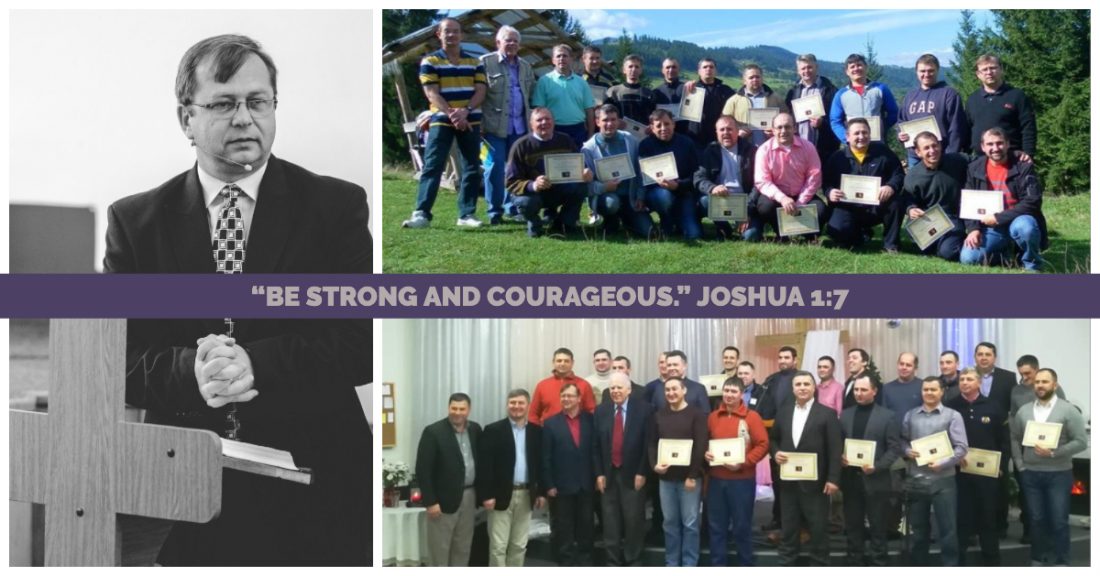Bill: [Following how God was moving] led to some drastic changes in the nature and direction of our work. We were doing one-to-one discipleship. People were coming to us from all over the place—students from seminaries and Bible schools, housewives, business guys. It was a rich and rewarding ministry.
But the more we studied the Scriptures, the more we realized that we were taking people out of their church to this organization to disciple them. The more we understood the centrality of the church in ministry as it’s revealed in the Scriptures, the more we were convicted that we shouldn’t do that. The church is the center of ministry. It’s in the local church where we have shepherds who oversee the people of God with authority, where we have the consistent ministry of the Word, where we have real-life relationships in which the gospel can be lived out in reality. We began to realize that everything outside of the church is—to some degree—a make-believe world.
Any mission only has the validity to exist to the degree that it builds up pastors and churches.I remember being in a far-off place and a pastor who had worked with us some in Southeast Asia talked with us about the possibility of leading our staff. He’s a wonderful leader and teacher, but I think he had had a bad board meeting that week. I said to him, “Matt, missions is a cheap high. That’s all it is. A make-believe world. We are going to people who are hungry and responsive, they are mature, they want to learn. It’s fun, it’s easy. In the church, in the trenches of life is where you have real ministry. Where there’s hurting people, broken marriages, broken dreams, financial pressures, sickness, failures, broken relationships—that’s where real-life ministry happens.” That’s why I’m still on staff at our church—I want to stay in the real world of ministry.
Any mission only has the validity to exist to the degree that it builds up pastors and churches. The church is the center of God’s purposes.
Kevin: Ephesians 3:10 comes to mind about how the church is the instrument God uses to put His manifold wisdom on display to the rulers and principalities. He doesn’t say parachurch ministries—although they can be excellent.
Bill: It’s in the church that we can stand with a husband and wife who are thinking of leaving each other and say to them, “Do you realize that the angels are learning about God while they’re watching your marriage? He’s fulfilling His purposes through you.”
Kevin: So we transitioned from a one-to-one discipleship ministry to a ministry that better supports the church.
Bill: That’s when we made our studies available to churches—we taught Bible conferences to churches. The first big transition was from one-to-one discipleship to churches. We were teaching conferences in churches throughout the States and in many places in the world.
“Bill, you’ve got to make your ministry available to missions. Missionaries are always in great need of encouragement, and your ministry is very encouraging.”Another transition came when we were invited to Ecuador to minister to the staff of HCJB. That developed a partnership with them that lasted for decades. They had a new president when we started working with them named Ron Cline. Ron became a very close friend and a great encourager. He said to me one day, “Bill, you’ve got to make your ministry available to missions. Missionaries are always in great need of encouragement, and your ministry is very encouraging.”
One Scripture we have taken to heart is when Paul says to the church at Rome that the encouragement of the Scriptures brings hope (Romans 15:4). People who are in pressure-filled, hard-working situations where so many things cry out saying “This is hopeless!”—they need encouragement. Through this, many mission centers around the world became part of our work.

Breaking ground for LRI’s Global Ministry Center in Palos Heights, IL.
Kevin: That shows again how you follow the Lord’s leading.
Bill: It was part of watching to see what He’s doing and what He wanted us to do as we walked with Him.
Kevin: You said that in 1981 you started doing an international conference ministry. How long did that season of LRI’s life last?
Bill: One interesting comment about that is that I had become so committed to the church in America that after I came home from my first trip to Ecuador, one of the staff members said, “How was it, Bill?” I said, “It was beautiful, but I don’t think I’ll ever go overseas again. God’s called me to minister to the church in America.” That’s just an indicator of how good I am at discerning God’s leading and how unimportant that is in the process—God will do what He pleases whether we perceive one thing or not.
That did begin a new season and we began to focus more and more on pastors. We learned that it’s quite easy to get a group of 50 or 100 pastors together anywhere in the world. You can have a very enthusiastic response and a wonderful time, but we always walked away feeling, “What really happened here?”
With the need for pastoral training so great around the world, and with us and all other missions being so limited, we decided as we prayed to go smaller and deeper. That’s really when our TNT (Training National Trainers) ministry began. We needed to work with smaller groups of pastors in more depth over a longer period of time—going back to 2 Timothy 2:2 and equipping them to do the work of ministry. That was a turning point of ministry—to equip nationals to train nationals in preaching and shepherding. That’s how we got to TNT.
Part Three wraps up our interview and shares how God has greatly expanded the impact of the Training National Trainers program since its inception in 2001




 Servant of the Word. Husband. Blogs weekly at
Servant of the Word. Husband. Blogs weekly at 
